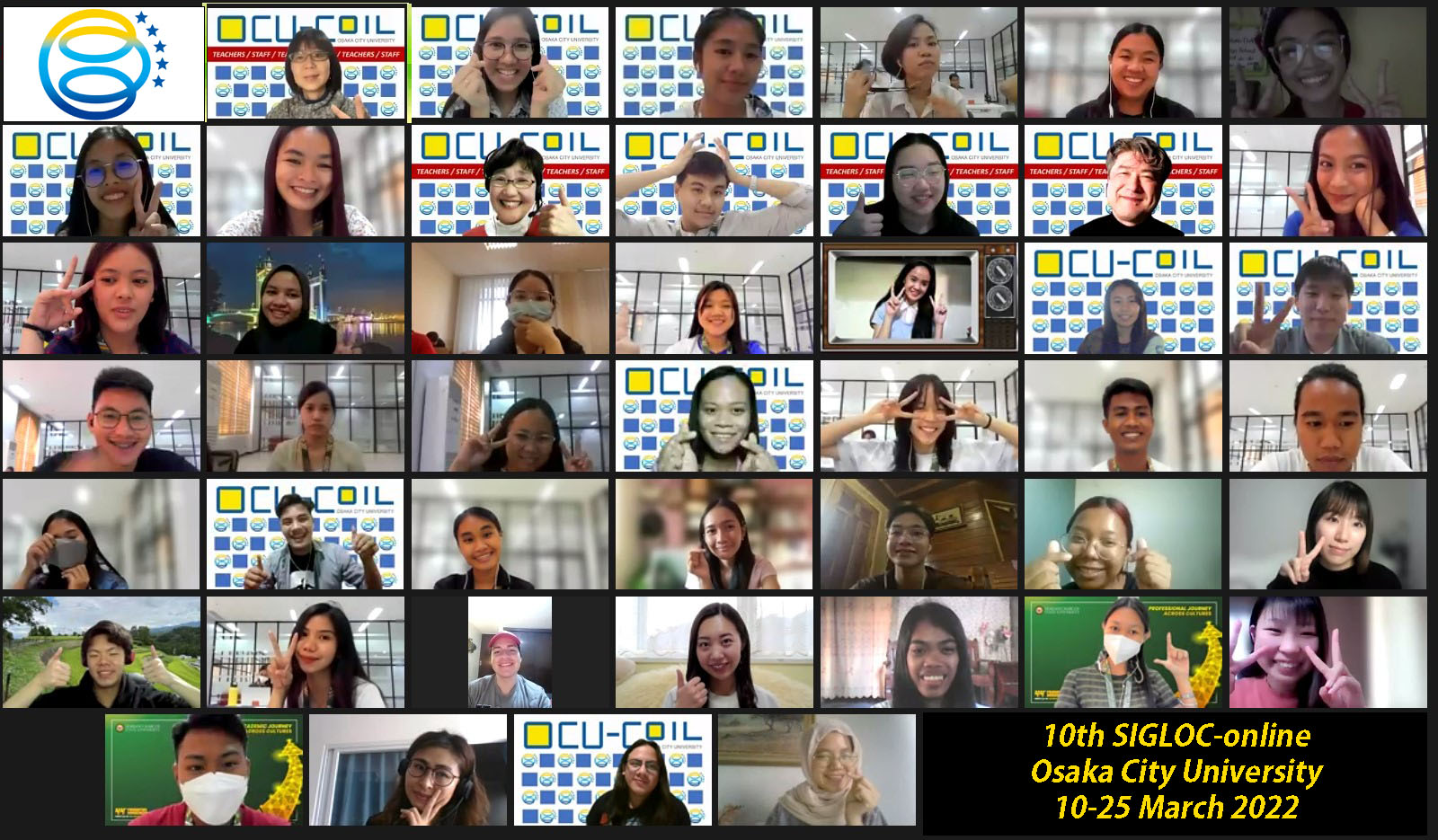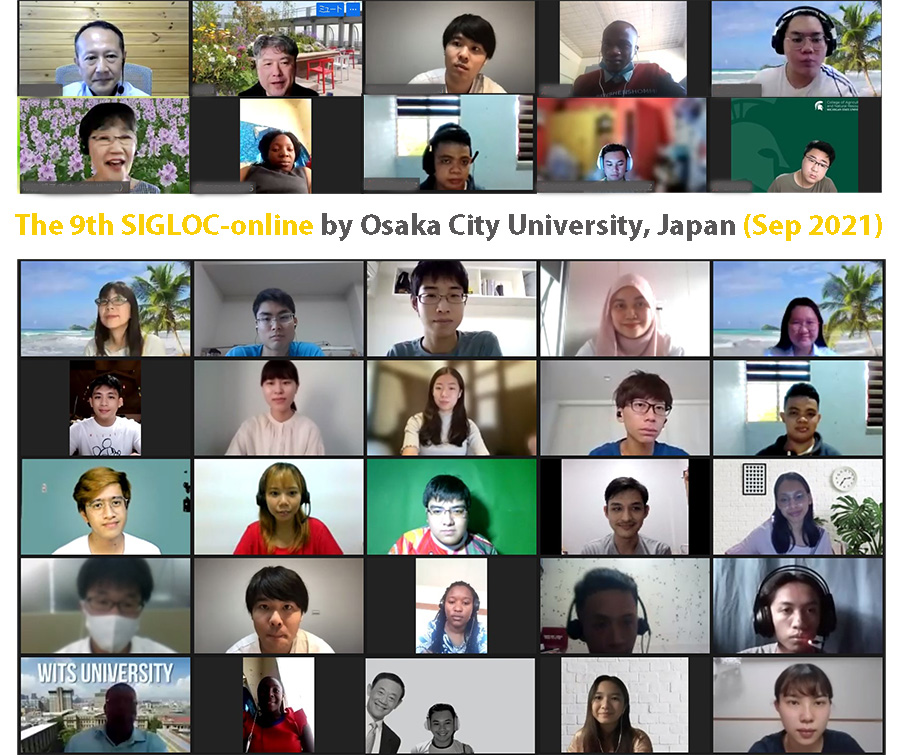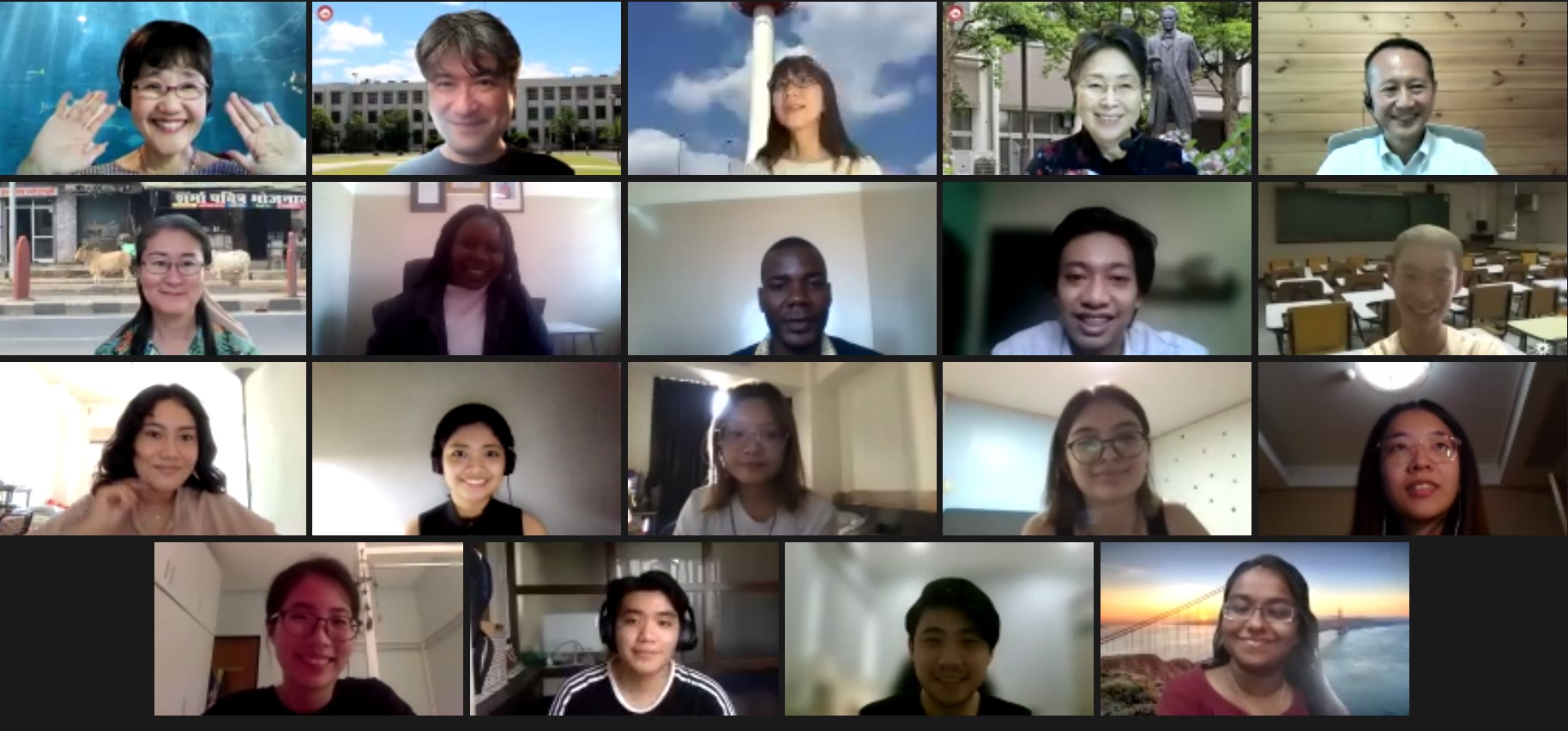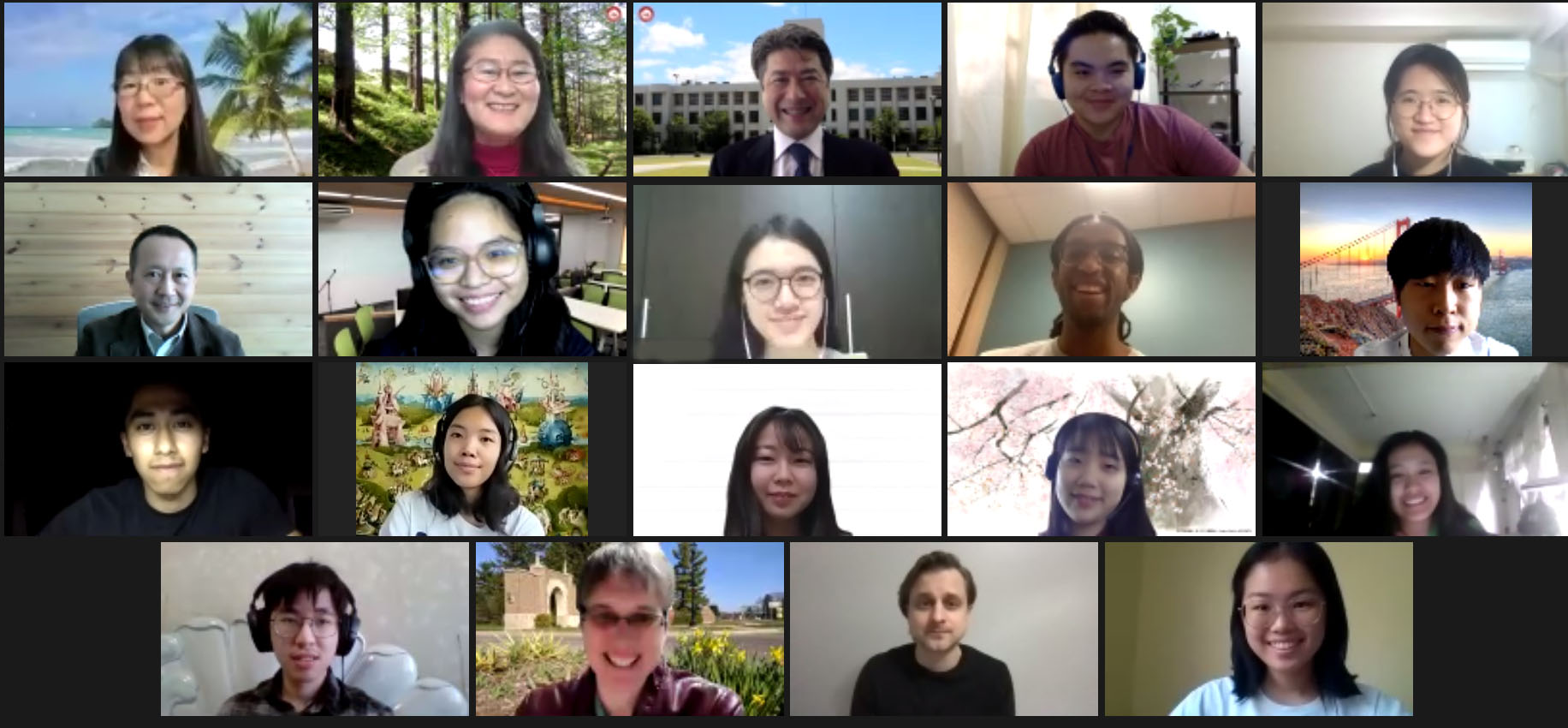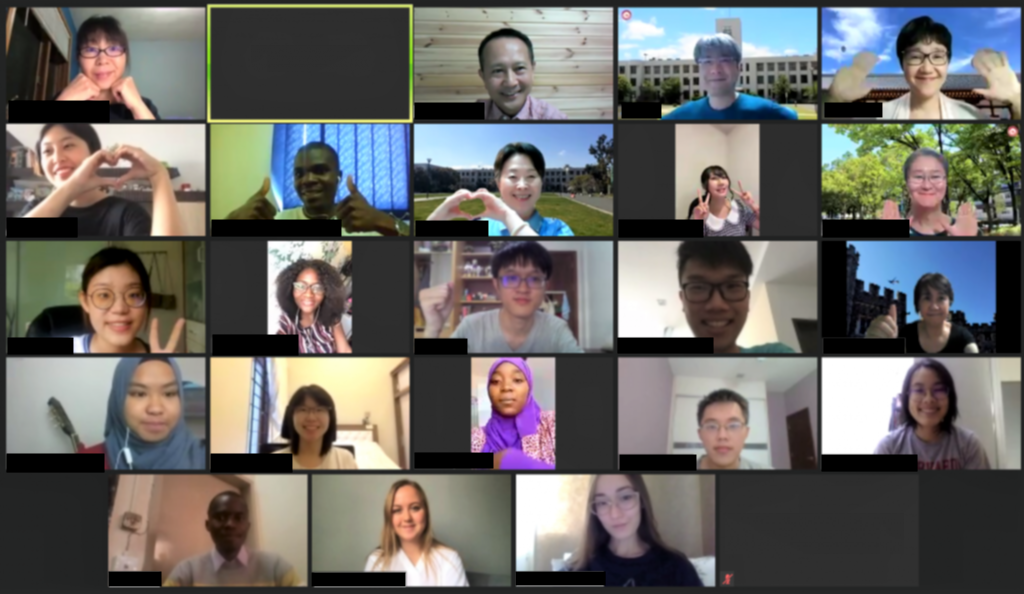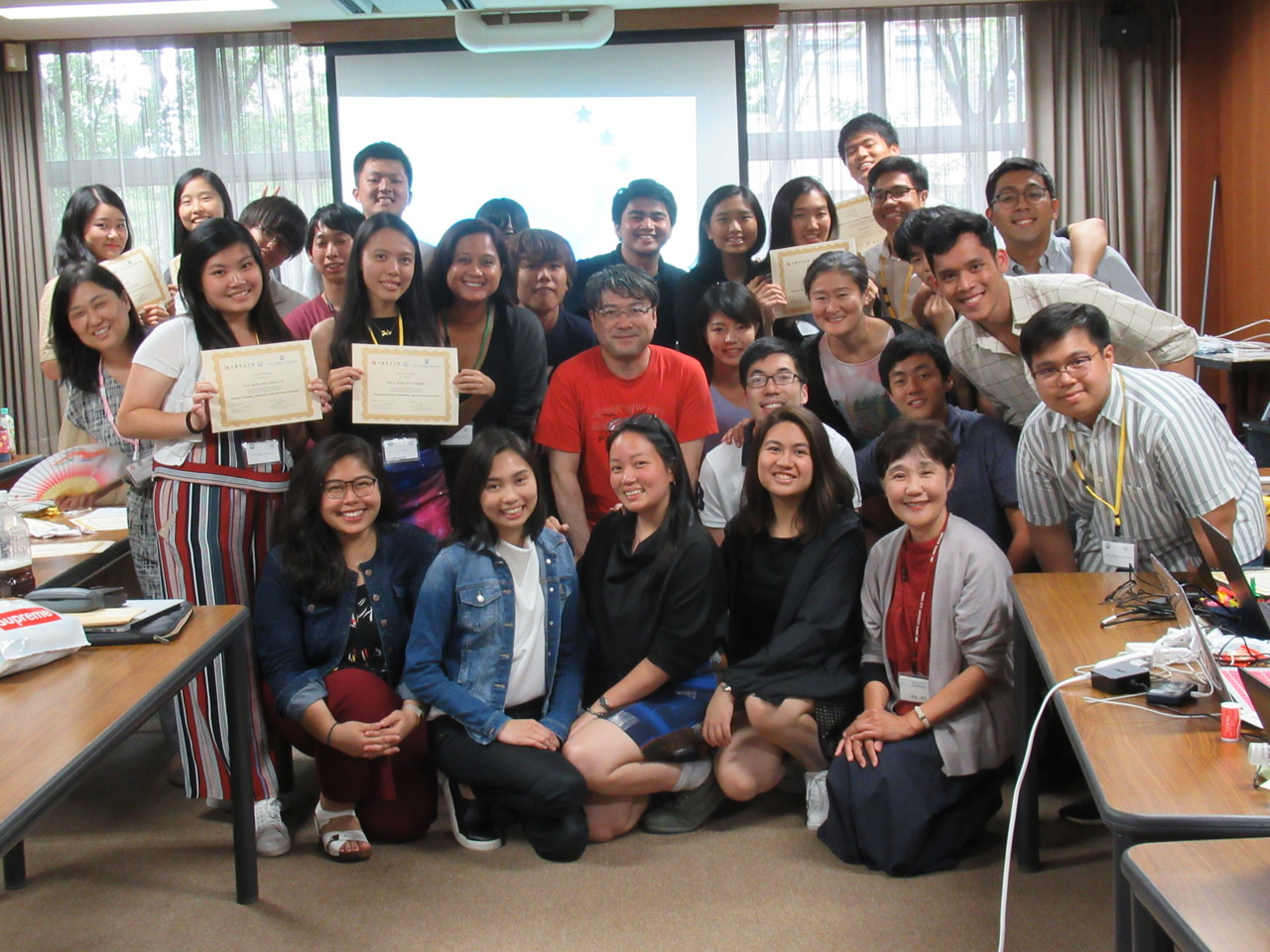
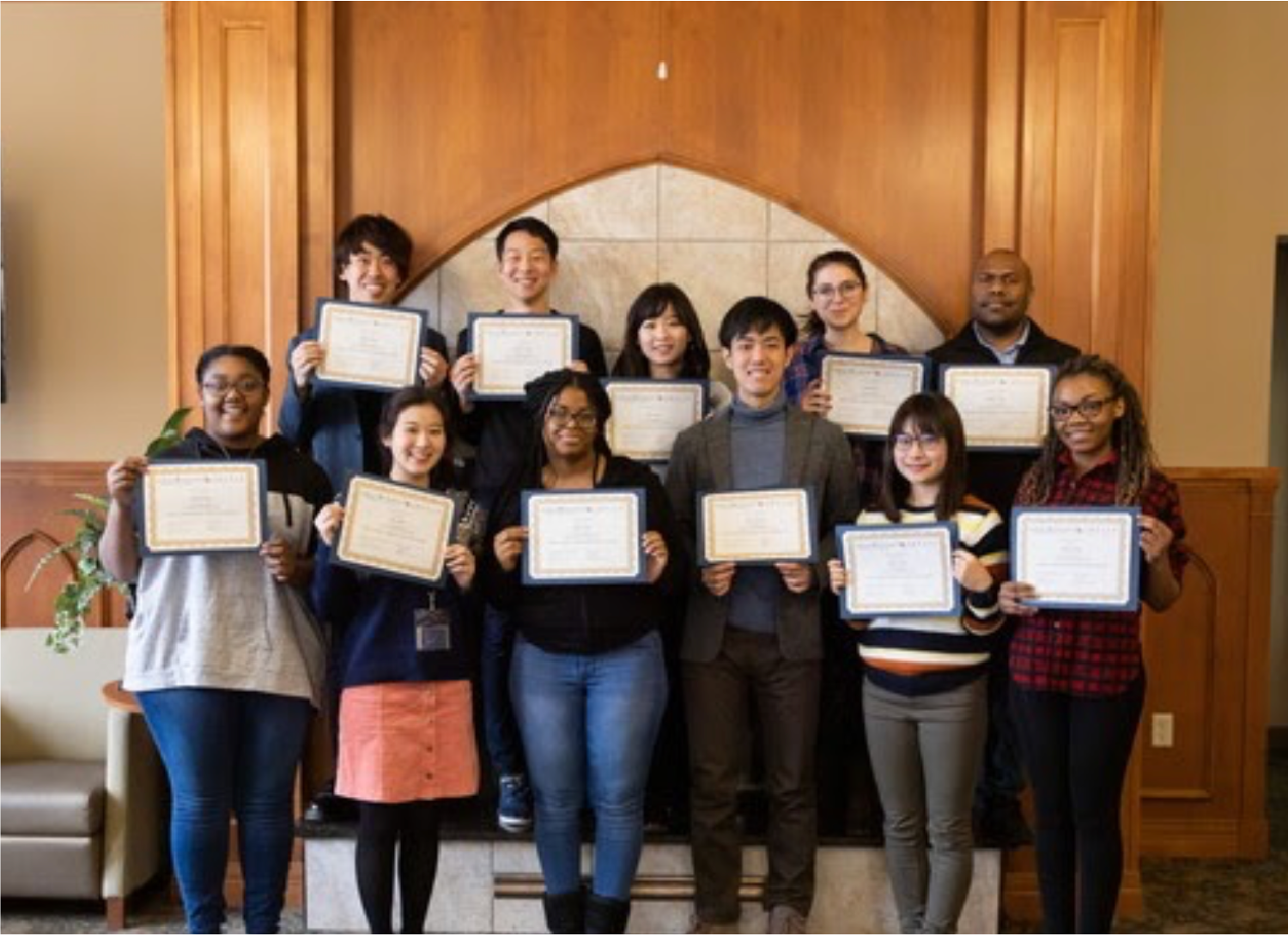
The 8th SIGLOC-online
SDGs: Social Innovation in your Local Community toward Solving Global Issues
As a school selected for the FY 2018 Inter-University Exchange Project of the Ministry of Education, Culture, Sports, Science and Technology, Japan, Osaka City University (OCU) is implementing a Program to Develop Collaborative Social Innovators that uses Collaborative Online International Learning (COIL). As a part of this program, OCU conducts an intensive program called “SIGLOC” (Socially Innovative Global Classroom).
Since the spring of 2020, OCU implements an entirely online program entitled “Socially Innovative Global Classroom: Online” (SIGLOC-online) to provide international education unaffected by COVID-19.
The 8th SIGLOC-online started its four-week program on June 24, 2021, and finished successfully on July 21, 2021.
This is the first attempt to extend the period of the program from two weeks to four weeks. Leaflet
Opening Session
The program theme this time is “SDGs: Social Innovation in your Local Community toward Solving Global Issues”.
A total of 21 students from 9 countries/regions gathered.
All the students and teaching staff participated from home.
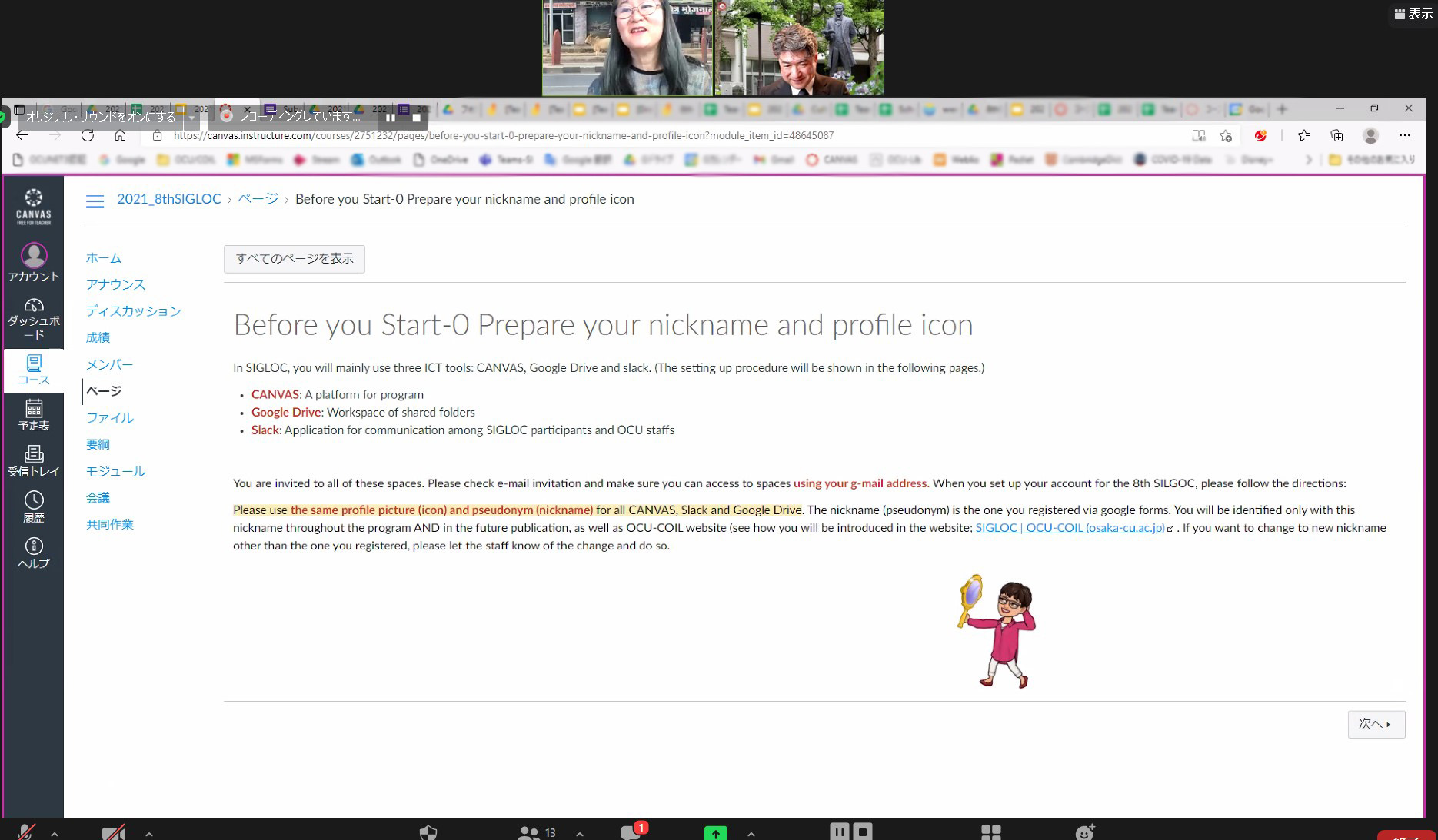
We held the opening session in two different time zones since the participants resided in different countries all over the world.
The morning session was recorded and shared with those who were not able to attend on time.
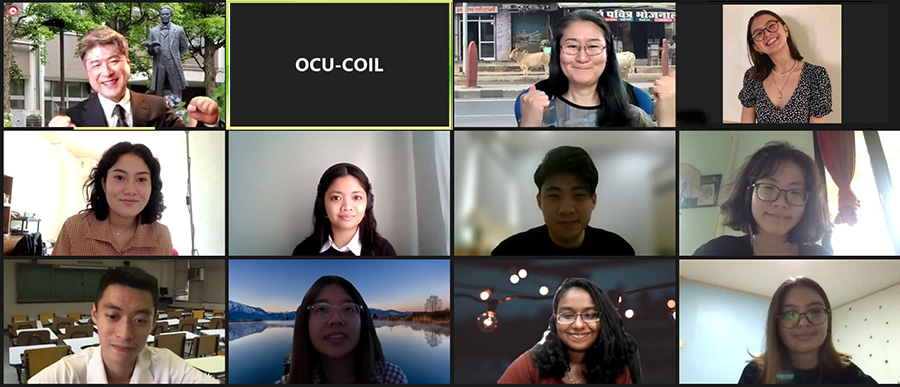
First day of SIGLOC: Opening Session on June, 24
Cultural Program
In the cultural program, the participating students created interesting team presentations.
Each of the presentation slides has original team names – Notion5, Sophie, SuperBomb, and Unifive – with lovely logos, and introduces the culture of each member’s country.
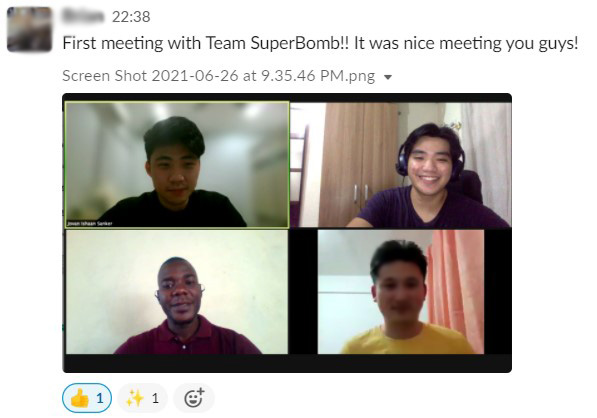
Each group gathered and discussed with adjusting to the time difference.
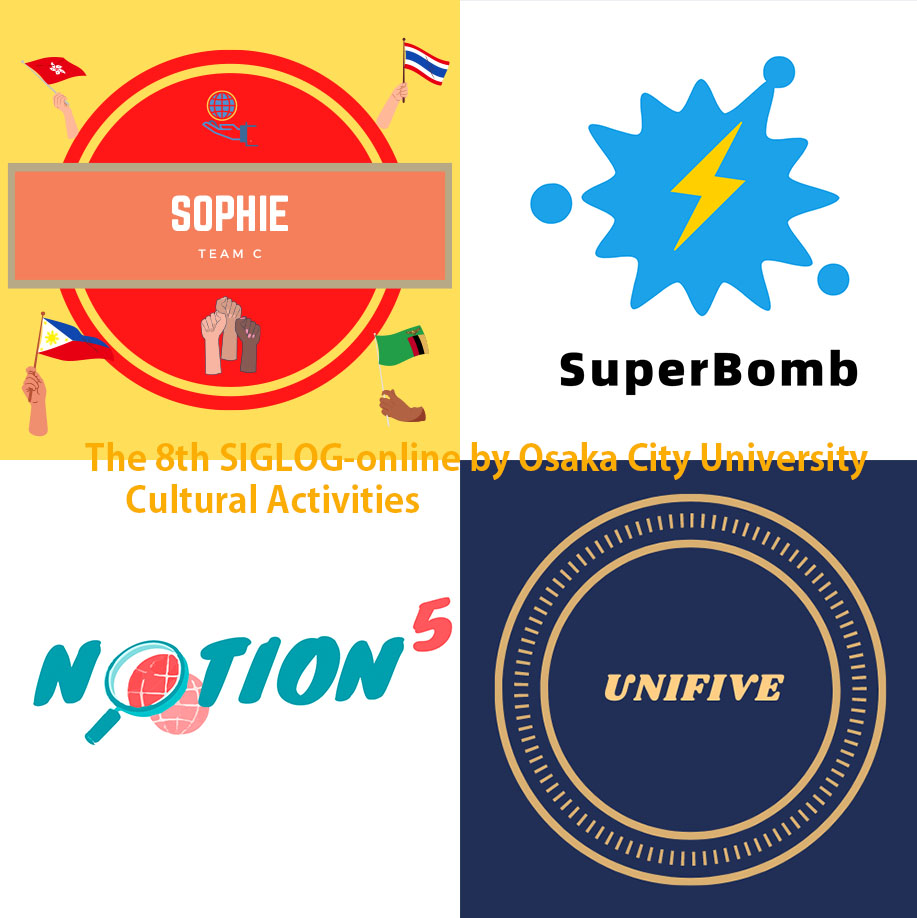
Cultural Program: team names and logos of the four teams
Follow-up Session
A casual get-together for interaction among 8th-SIGLOC members and staff was held online – the participation was not mandatory.
It is also the opening day of cultural exhibitions. The each member introduced the culture of his/her own country using slides.
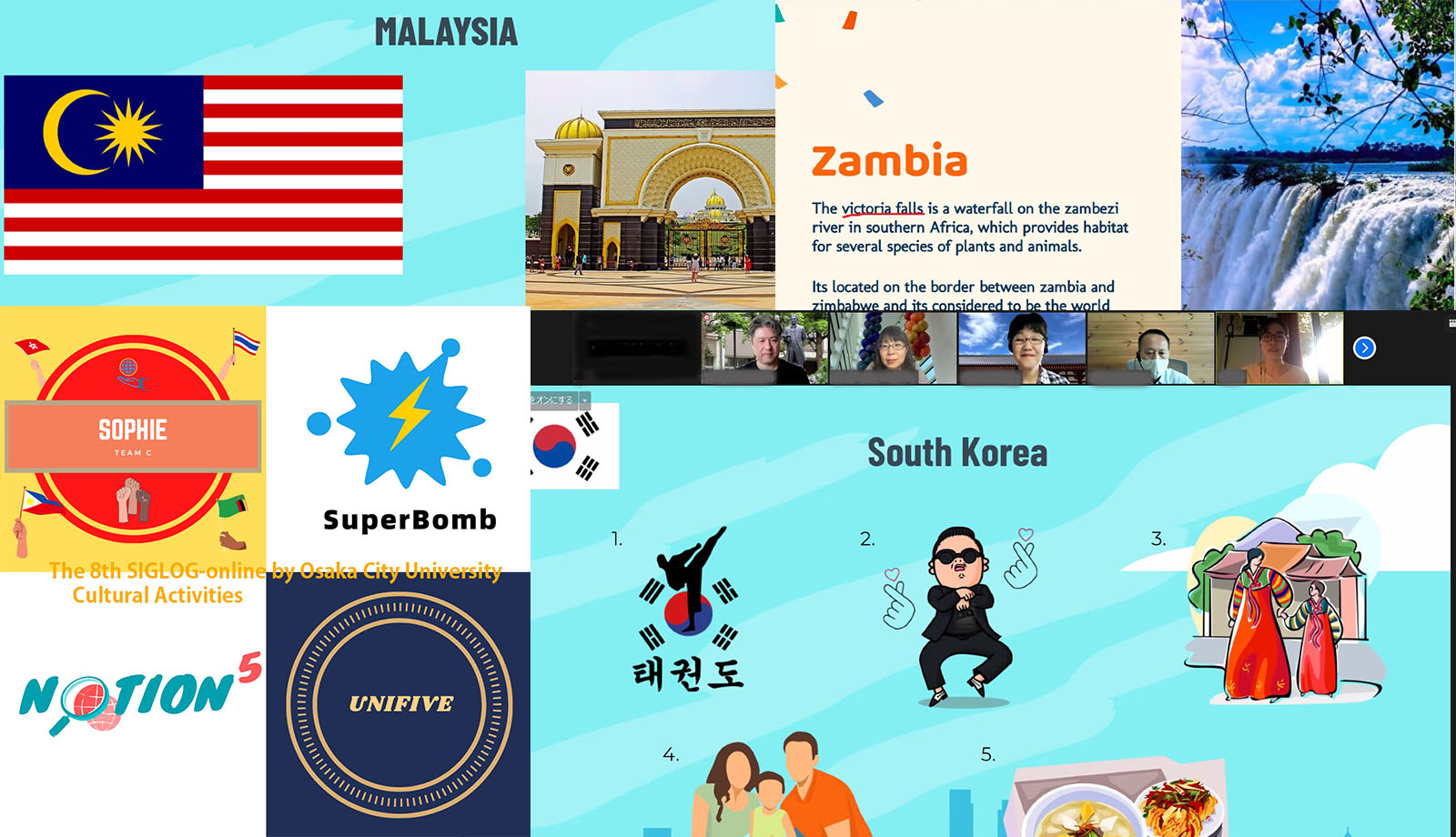
Culture program presentation materials (edited) on July, 5
Weekend Party
Participating students held weekend parties to take a break while being busy with daily tasks.
It seems that they enjoyed interacting online across national borders- watching movies, cross-team parties and game competitions.
(Below is the interaction on Slack for the party, June, 9-10)
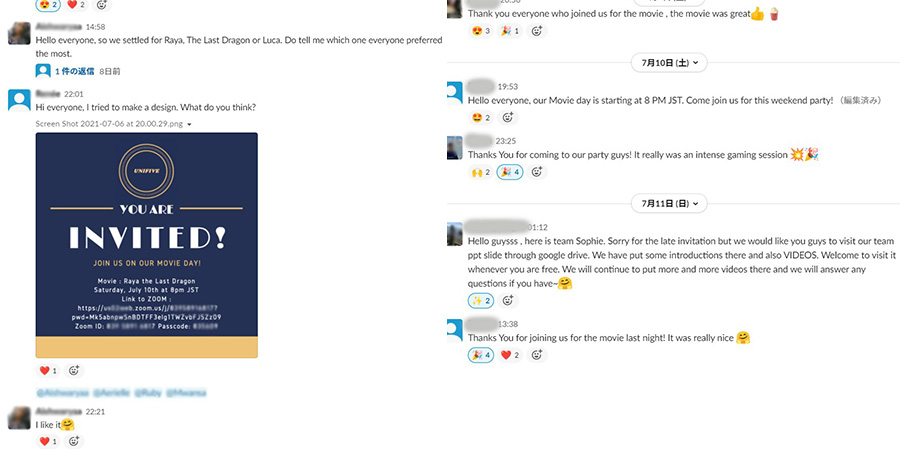
Working on tasks: Research, Data Analysis, and Discussion
During the 8th SIGLOC, session 1 was for individual debate, and session 2, 3 and 4 were for group works (3-4 students each).
The participating students worked on tasks from the perspective of topics such as “Circular economy and local supply chain” and “Civic pride and local community”.
They did research and analysis on the tasks selected by each group and compiled the solutions into an SI report, while sharing information online with the group members.
Summaries & Reports: Closing Session
The students presented the reports at a closing session.
The closing session was held with the participation of all students by adjusting the time zone in which all can participate together.
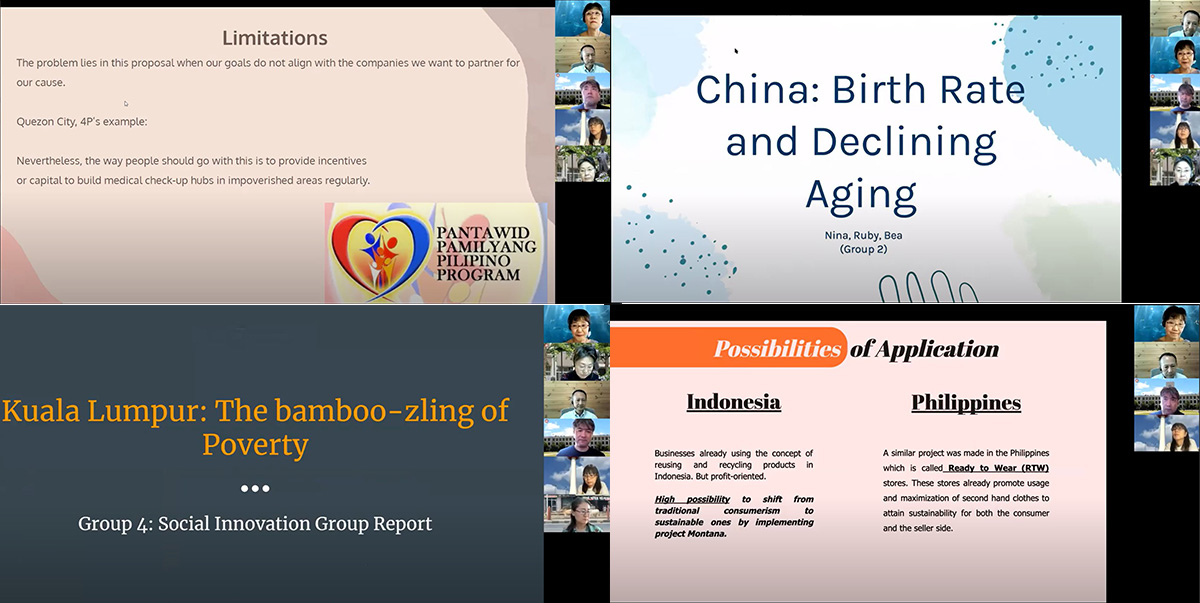
Presentations by 4 groups
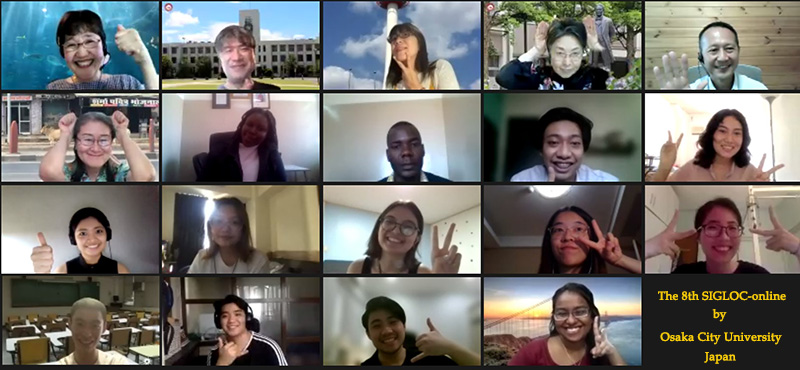
Big smiles at the end of the closing session, July, 24
After the end of the entire SIGLOC period, 13 students who have completed all the assignments received a Certificate of Completion.
Summary of Feedback Results and Pre & Post Self-Evaluation Results
NPS (Net Promoter Score)
NPS is an index that gauges the likelihood (rating 1-100) to recommend this activity/program to a friend or colleague.
The 8th SIGLOC-online: NPS 76.9
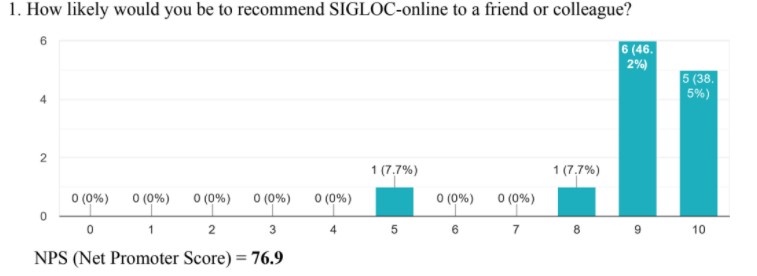
We conducted a questionnaire with the students who participated in this SIGLOC-online.
Please see the summary of the questionnaire results below.
> The 8th SIGLOC-online Feedback Questionnaire Result
> The 8th SIGLOC-online Pre & Post Self-Evaluation Results
Through COIL education by working collaboratively with overseas students on social issues, students can gain awareness and learning that are different from the program provided locally.
We will continue and put more efforts to develop for even better educational programs.
2023年度

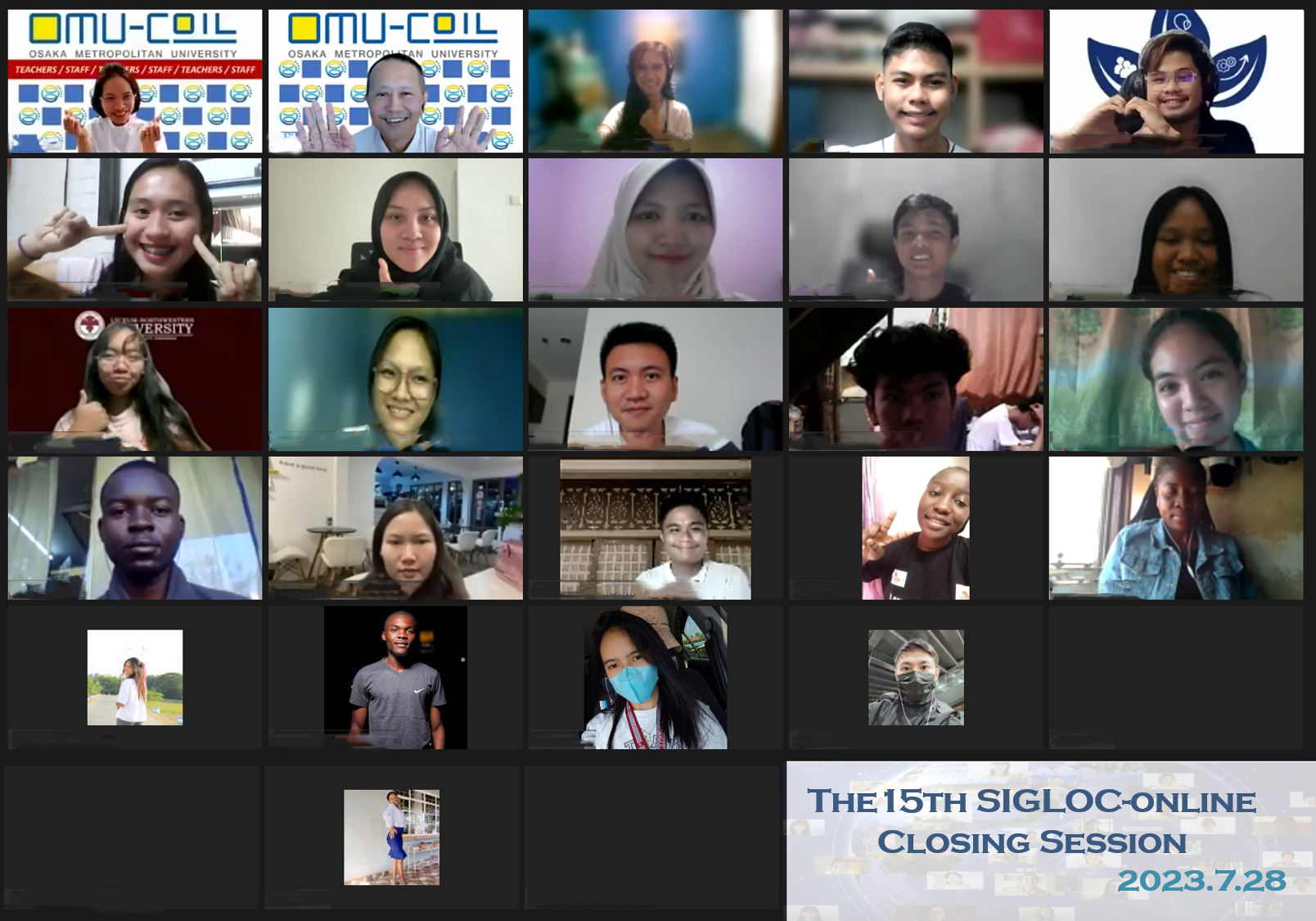
2022年度
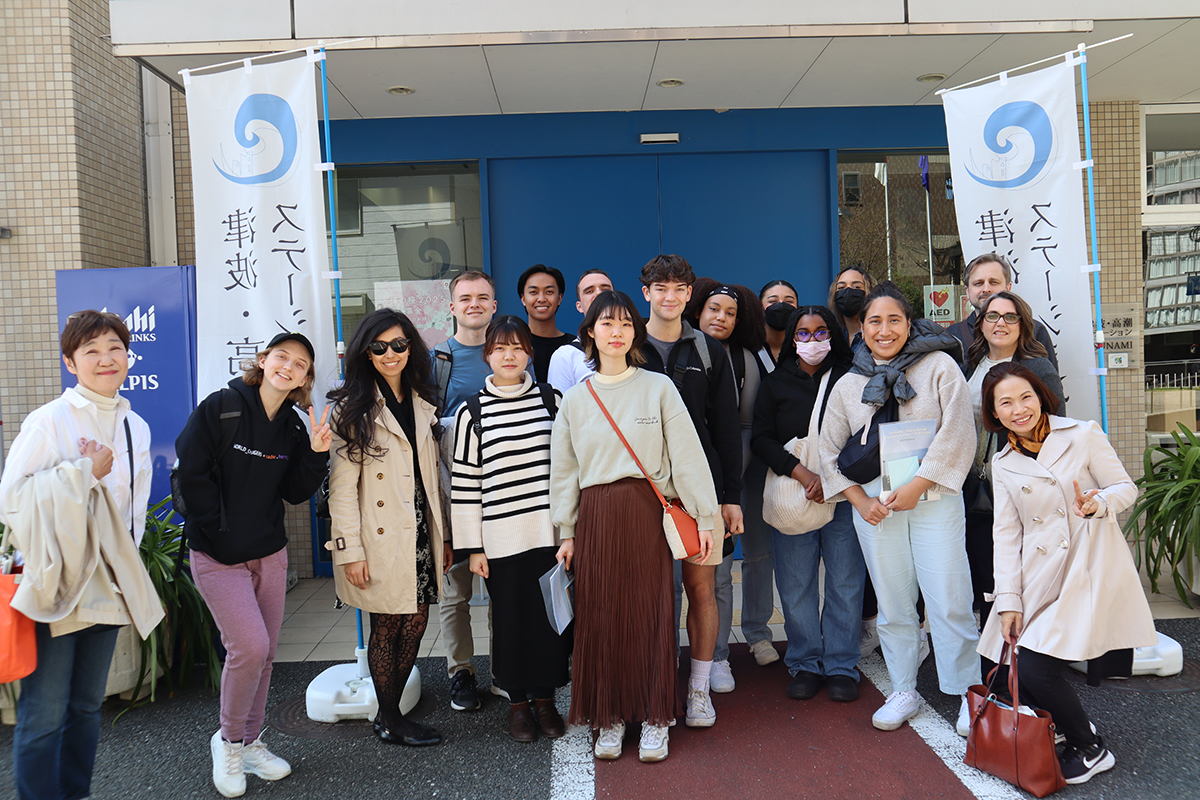
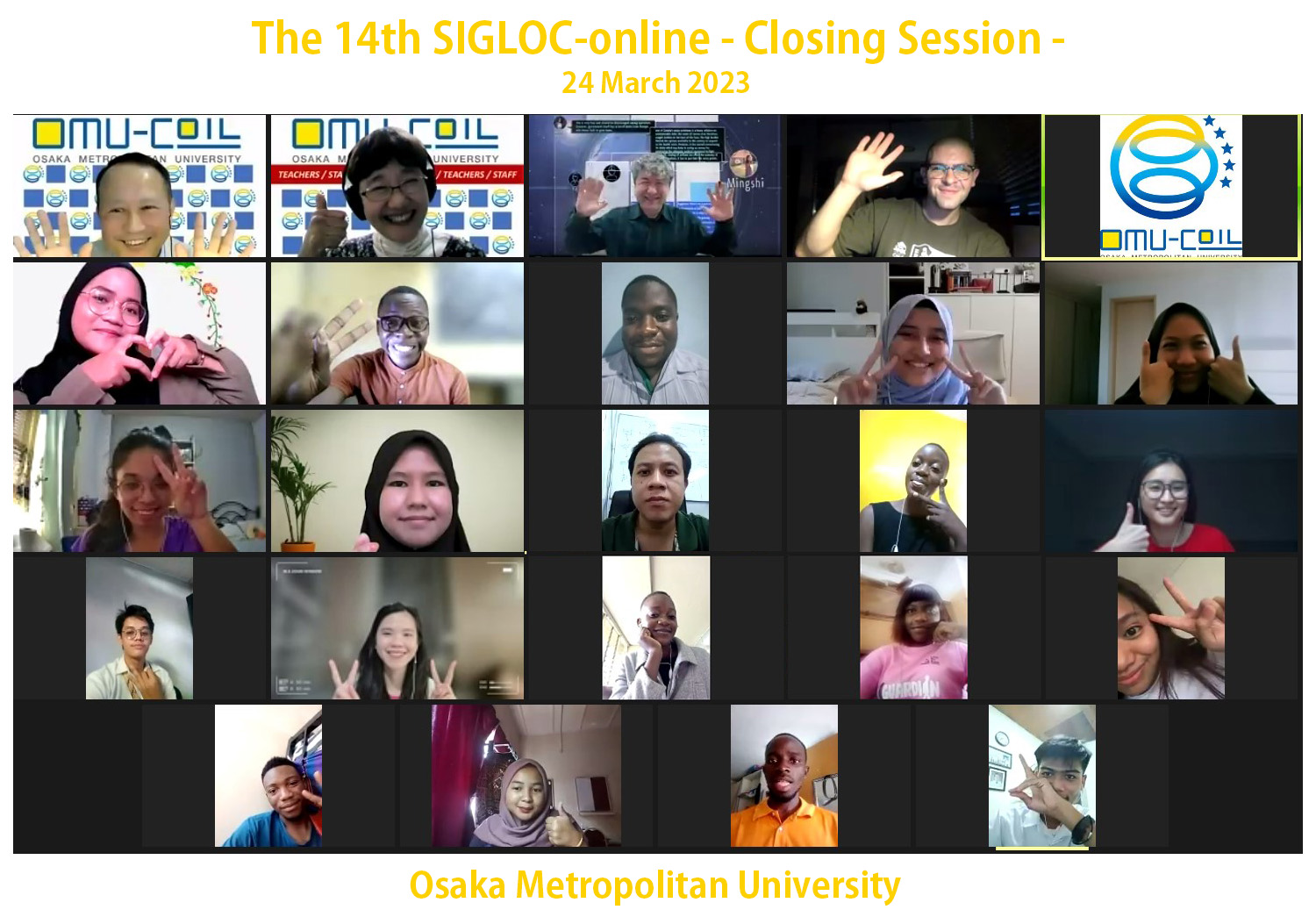
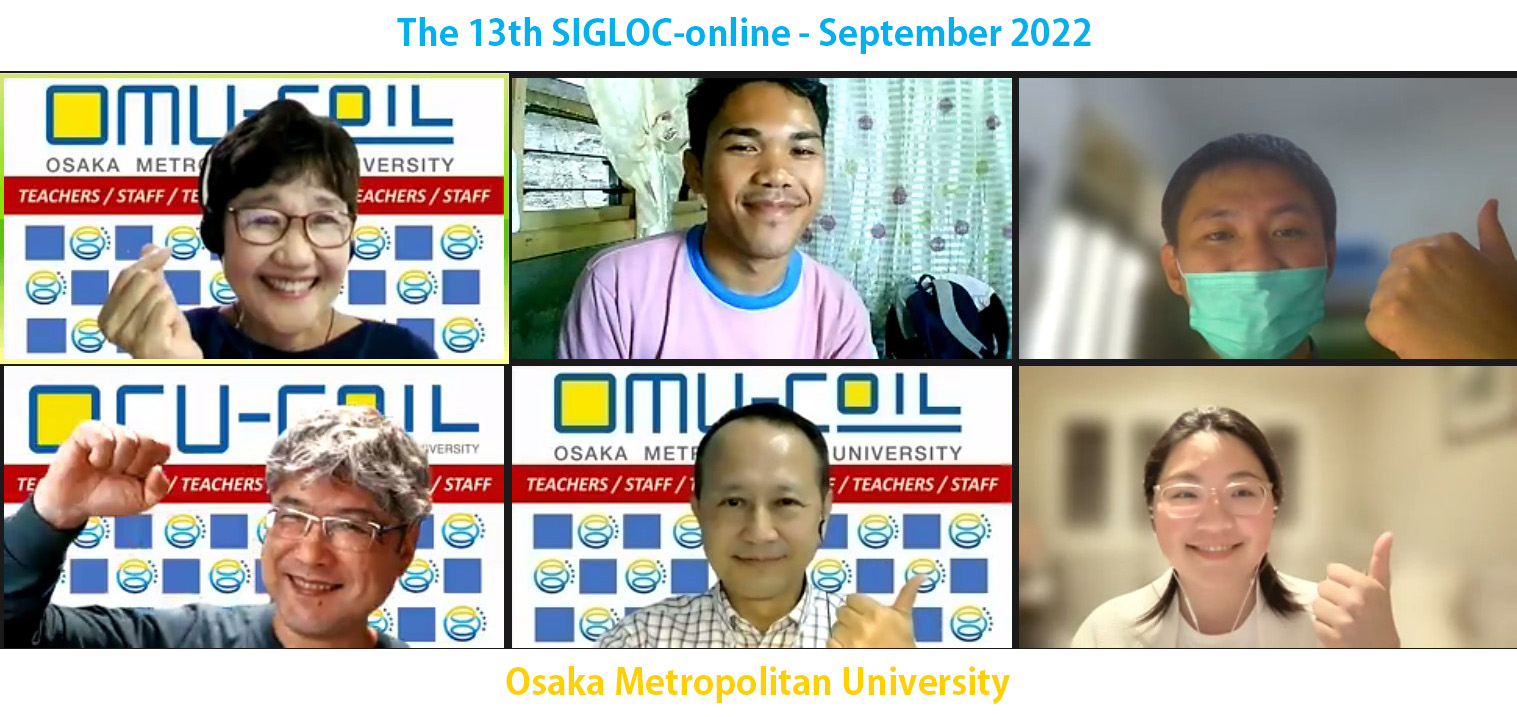
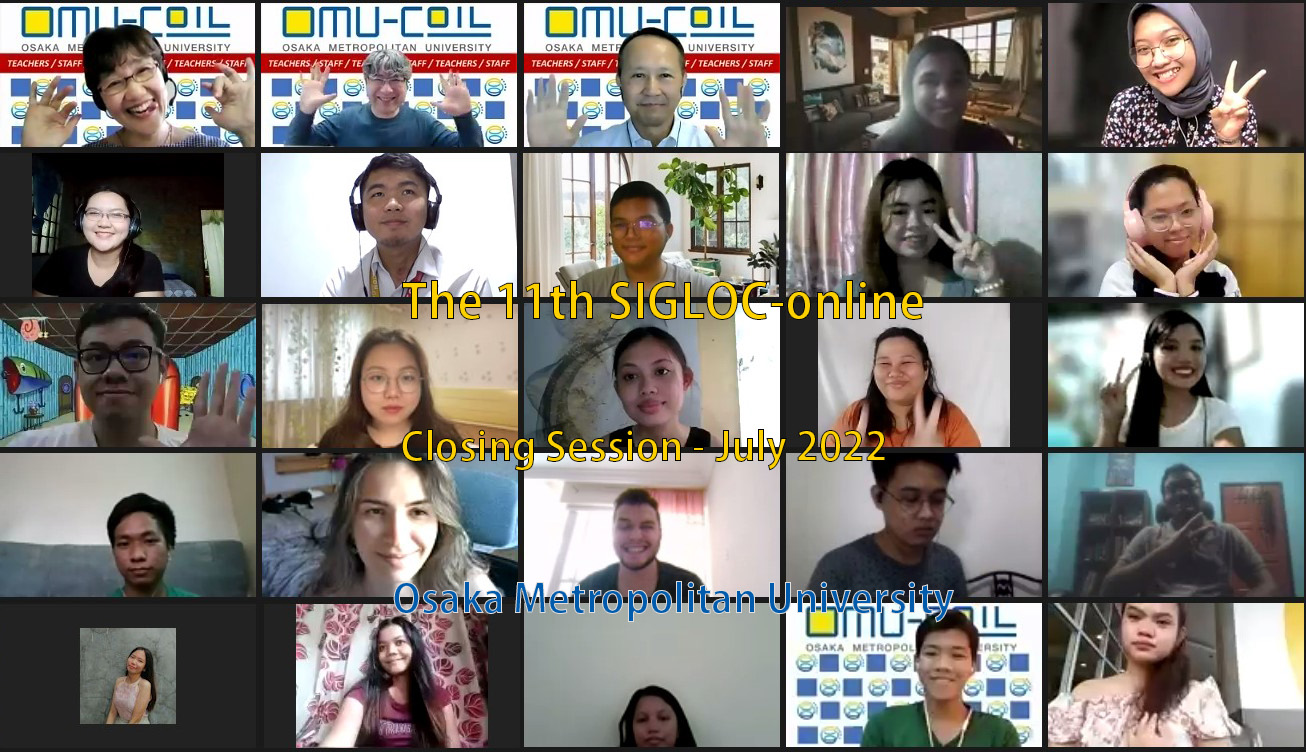
2021年度
